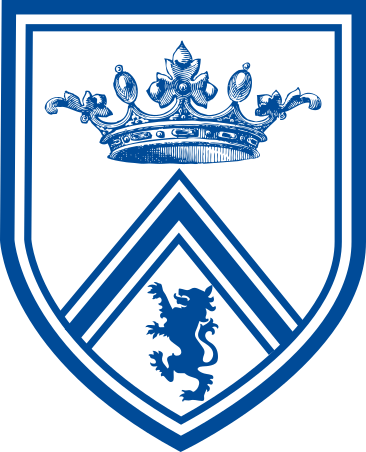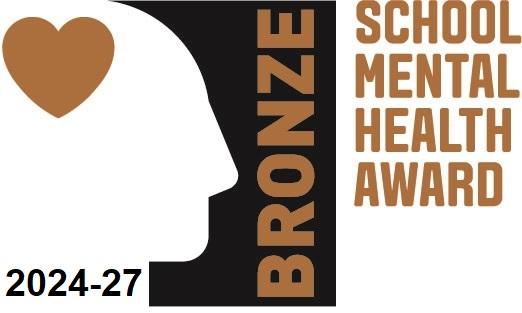FURTHER MATHS
Please click on the links below:
Further Maths Learning Journey
Further Maths Recommended Reading
What is Further Maths about?
A level Further Mathematics is a second A level in maths that broadens and deepens the maths covered in A level Mathematics.
It’s studied alongside, or following, A level Mathematics and is often taken by students who wish to apply for a degree in Mathematics or another subject that involves degree-level maths. As such, it’s also an excellent preparatory subject for careers that involve using higher level maths.
Further maths allows its students to study a range of modules. With 4 exam papers, there’s a lot to get through. The first 2 papers focus on pure mathematics. Pure mathematics can test students on concepts such as matrices, further vectors, further calculus, proof, hyperbolic functions, and differential equations. And this isn’t all! The second 2 papers include optional content. Students can choose different modules including further pure mathematics, further mechanics, further statistics, and decision mathematics.
What do we teach in Further Maths and why?
Whilst learning Further Maths at Kingsmead, students can gain skills which are very desirable to employers. They will gain advanced problem solving, analytical, and organisational skills. This isn’t to mention logical thinking and the ability to interpret complex data. These skills are incredibly useful in a lot of high-paying professions. This can be a way into becoming a data scientist, accountant, actuary, mechanical engineer, just to name a few. With a strong skillset gained from further maths, you have more of a chance of succeeding in the working world.
Students will use rigour to understand and apply complex solving problem skills to their work and perfect their application of mathematical concepts. In Further Maths, students will also develop their collaboration skills as we work both independently and in groups to develop their mathematical skills.
Our school motto is ‘Practise to Perfect’ because we believe that the only way someone succeeds is by having a clear idea of what they are aiming for; focusing on how to achieve it and putting in the work, no matter how difficult it might seem to start with.
We want ‘every student to be able to access a university course or a professional career’. That is not necessarily a career as a ‘professional’ such as a doctor, teacher or vet, but a career that will take them somewhere and that they will have a professional attitude towards. We want to prepare students for life and to equip them to access the opportunities it offers. So, just as importantly, we want Kingsmead students and our colleagues to display and develop the following school personal values:
COURAGE: Aiming beyond our comfort zone, facing difficult challenges and doing things the right way, not just the quick way.
NURTURE: Believing everybody gets better by taking one step at a time and that it is our responsibility to find ways to help each other to do that.
COLLABORATION: Believing that working together lightens any burden and opens us to new ways of thinking.
RIGOUR: Thinking things through and working hard to ensure that we are delivering on the right things all of the time.
What does Further Maths enable our students to do?
Along with learning new topics, reinforcing knowledge every lesson through retrieval is the key aspect of learning mathematics: we give pupils plenty of opportunity to practice and therefore remember key mathematical methods. Our lessons are grounded in use of the ‘Non-negotiable principles for outstanding teaching and learning’ set out in the Teaching and Learning policy, we ensure our staff have the tools to deliver outstanding Further Maths lessons which are engaging and allow ALL pupils to progress, irrespective of one’s starting point. Our goal as a department is to ensure that:
- Fluency in the fundamental concepts and processes of mathematics
- Problem solving through applying fluency to novel problems in systematic ways
- Follow lines of enquiry, generating and testing hypotheses
- Mathematical representation of concepts, symbols and processes
- Ability to use digital tools appropriately to check and explore mathematically
How is the curriculum structured in Further Maths?
Students can choose to study Further Maths as an AS only in Year 12 and continue A2 in Year 13. Students must complete all assessments in May/June in any single year.
|
Paper 1: Core Pure Mathematics 1 (*paper code: 9FM0/01) Paper 2: Core Pure Mathematics 2 (*Paper code: 9FM0/02) |
|
Each paper is: 1 hour and 30 minutes written examination 25% of the qualification 75 marks |
|
Content Overview Proof, Complex Numbers, Matrices, Further Algebra and Functions, Further Calculus, Further Vectors, Polar Coordinates, Hyperbolic Functions, Differential Equations |
|
Assessment Overview Paper 1 and Paper 2 may contain questions on any topics from the Pure Mathematics content Students must answer all questions Calculators can be used in the assessment |
| Further Mathematics Optional Papers (*Paper Codes: 9FM0/3A-3D, 9FM0/4A-4D |
|
Each paper is: Written examination: 1 hour and 30 minutes 25% of the qualification 75 marks |
|
Content Overview: Students take two options from the following eight: Option 1 Papers 3A: Further Pure Mathematics 1 3B: Further Statistics 1 3C: Further Mechanics 1 3D: Decision Mathematics 1 Option 2 Papers: 4A: Further Pure Mathematics 2 4B: Further Statistics 2 4C: Further Mechanics 2 4D: Decision Mathematics 2 |
|
There are restrictions on which papers can be taken together. Students choose a pair of options, either: any two Option 1 papers, or a matching pair of Option 1 and Option 2 papers This makes a total of ten different option pairs. |
|
Assessment Overview Students must answer all questions Calculators can be used in the assessment |
What are the links between Further Maths and other subjects?
The Non-Medical field consists of subjects like Physics, Chemistry, Mathematics, Informatics Practices etc. Now talking about Physics, much of its concept is based on mathematical derivations which include you to use formula and algorithms to solve a problem. Chemistry includes you to make calculations based on the amount of chemical taken, amount of chemical mixed and the composition of chemical/product formed from it which is it mathematical. The subject of Computing includes you to use a computer which is itself a hub of mathematical calculations and software like Microsoft Excel can’t be bought into use without using mathematical formulas in them. Talking about arts field, it includes subjects like polity, economics, geography etc. Well, geography includes the study of the coordinates which is mathematical. History includes remembering the dates and making calculations of back dates. Economics is a study related to money or income and thus it is again nothing but mathematics.
What specifications do we follow?
A Level: Edexcel (9FMO/01 & 02)
What are the future careers students can take when they study Further Maths?
The logical thinking, problem-solving and decision-making skills you learn while studying Further Maths are highly valued by employers across many job sectors. Students can be successful in careers in Finance, Accountancy, Science, Data and Technology. With Maths subjects, there is always a right answer, which means students studying the subject at this advanced level will strongly develop their problem solving and analytical skills. Working to reach these complex solutions will also ensure students develop critical thinking, quantitative reasoning and the ability to present intricate information. This combination of skills will make for a winning combination for future employers and you may find they make your day to day life easier too!
What extra-curricular activities can students take part when you study Further Maths?
When studying Further Maths, students can take part in maths club, and tutor maths at lower levels, such as KS2, KS3 and GCSE. Students can also spend their time reading books on other areas of maths.
Students can also implement math when attending the coding/programming club or by joining a STEM Summer School.








